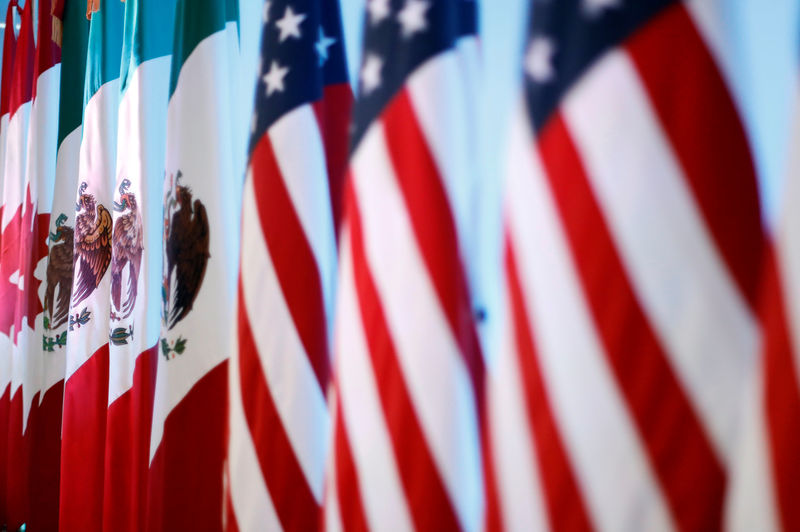By David Ljunggren
OTTAWA, Nov 8 (Reuters) - Canada is pushing back against U.S. attempts to change the text of their September trade pact and the issue may have to be referred to ministers to settle, a Canadian source with direct knowledge of the matter said on Thursday.
"Some of the stuff they (the Americans) have been putting forward is not at all what we agreed to," said the source, who requested anonymity given the sensitivity of the situation.
Although the source said Ottawa did not feel the problem would wreck the new U.S.-Mexico-Canada (USMCA) deal, the affair shows that tensions remain after a stressful 13-month negotiation.
The United States and Canada reached a last-gasp deal on USMCA at the end of September, guaranteeing that free trade between the three nations would continue. Officials are now fine-tuning the wording on the deal intended to replace the North American Free Trade Agreement (NAFTA).
"We are having discussions around the interpretation of a variety of things," said the Canadian source.
No one was immediately available for comment in the office of U.S. Trade Representative Robert Lighthizer, who led the negotiations for Washington.
Adam Austen, a spokesman for Canadian Foreign Minister Chrystia Freeland, said it "is normal after an agreement-in-principle is concluded for all countries to work together to ensure the text is accurate".
As part of the USMCA, Canada agreed that the province of British Columbia would stop its practice of only allowing local wines to be stocked in supermarkets.
The source said the United States was trying to broaden that clause to cover wine sales in the provinces of Ontario and Quebec. The two sides are also at odds over elements of Ottawa's promise to offer more access to U.S. dairy producers.
The source said it was not abnormal that nations would seek to "push a little bit further in terms of the text" at this stage of a trade negotiation.
The USMCA must be ratified by all three nations before it comes into force. U.S. President Donald Trump had threatened to walk away from NAFTA unless major changes were made.
Another area of contention are the tariffs on Canadian steel and aluminum that Trump imposed in June.
Freeland told reporters at a steel plant in Hamilton, Ontario on Thursday that she would be meeting Lighthizer in the next few weeks to discuss the matter. She reiterated that Ottawa does not think the tariffs and the USMCA are connected.
